By:Farinam M. Pletka
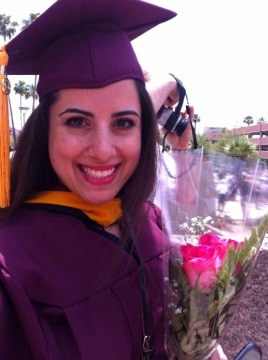 I just started my clinical fellowship in August and man has it been quite the experience! Even though I am only 3 months into my CF, I can already say that I have learned tons and I want to share that knowledge with you. This blog isn’t about how to make great therapy materials or how to take data. I feel that you already have access to that kind of information and are already working on those skills in your graduate program. I want to share with you information that they don’t teach you in graduate school. I want to teach you HOW to be a SLP in the schools.
I just started my clinical fellowship in August and man has it been quite the experience! Even though I am only 3 months into my CF, I can already say that I have learned tons and I want to share that knowledge with you. This blog isn’t about how to make great therapy materials or how to take data. I feel that you already have access to that kind of information and are already working on those skills in your graduate program. I want to share with you information that they don’t teach you in graduate school. I want to teach you HOW to be a SLP in the schools.
1. Don’t take it personally because it’s not you.
The first few weeks of school are when you need to find out where your office (or closet) will be, who is on your caseload, where the students’ classes are not to mention who is who on campus. This is a time when you will have to ask questions. This is also a time where a lot of the school employees may either be short with you, act frustrated or flat out refuse to help. But don’t take it personally because it’s not you. Even if this isn’t their first rodeo, it’s still very busy and overwhelming the first couple of weeks for everyone. Stress can really get the best of all of us and sometimes it’s hard to not let it affect how we interact with others. The very same people that I found to be rude or purposely unhelpful at the beginning of the semester are now very kind and pleasant to work with. That’s because the chaos of the first few weeks have subsided. So if this happens to you, smile and say thank you anyway.
2. Do NOT be intimidated.
Okay, I am sure you are rolling your eyes as you read this. How can you not be intimidated when you’re the “newby” and completing your clinical fellowship year? That’s just it. Most of the people you will come in contact with in the schools won’t know that you just graduated and are working on your CF. Even if you told them you were doing your fellowship, they probably wouldn’t know what that means. So when you meet teachers, the LSSP, parents, even the principal, realize that they are looking at you as an experienced professional. So be confident because only you really know speech and language, which brings me to the next tip.
3. You are the specialist. Act like it.
Look, you will be working with a team of people from general education teachers, special education teachers, principals, vice principals, school psychologists, etc. and although they are all very knowledgeable in their areas, including a bit of speech and language, they don’t know it as well as you do. Think of how much you thought you knew before graduate school and how much you know now. You know way more now, right? So don’t doubt your knowledge and your academic background when it comes to speech and language. Everyone may have an opinion, but at the end of the day, YOU are the expert. Stand tall amongst these well educated professionals and don’t hesitate to disagree with them in the best interest of the child.
4. Don’t stand TOO tall.
Ok, so we have established that you are the expert in your field and that means that you don’t need to rely on anyone else except yourself. WRONG! Being a SLP in the schools is actually a very complex job and you will need support. I can’t even remember how many times I just didn’t know the answer to a question or how to resolve a problem. You may have been a know-it-all in graduate school, but I promise you, there will be MANY times that you won’t know. You will just have to suck it up and ask someone for help because you don’t know everything and that’s okay. So be smart and when in doubt, ask someone. Which moves us on to…
5. Be nice to everyone and learn their names.
You just don’t know when a new colleague may become your life line. So learn their names and their roles on campus and make sure to introduce yourself. This is not the time to be shy. Seriously, there are many different people that work in the schools that can be of crucial help to you. Besides, your supervisor isn’t always going to be available. Let me just give you some examples by listing all the people I have asked for help.
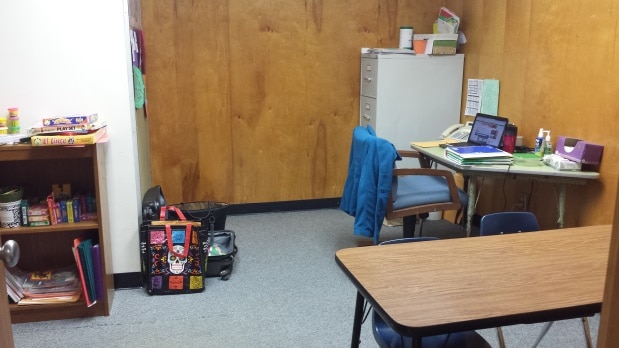
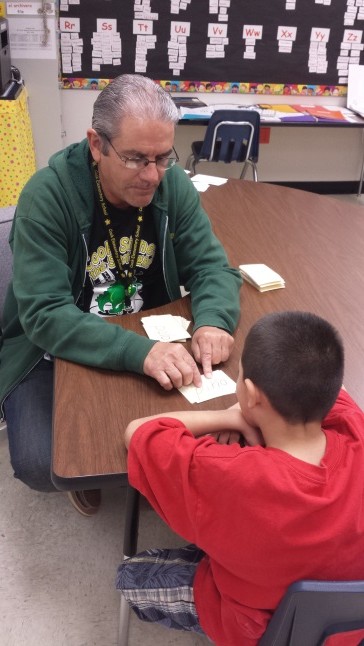
Office staff: Helped me contact parents, get printing paper, envelopes and student information that was not located in my student files (very important). Personnel working in the front office have access to all kinds of information and supplies. They can help you get class rosters, schedules, testing information, and materials (e.g. paper, pens, markers, envelopes).
Librarian: Provided me with a place to test and space to use as a temporary office as well as helped me get important ARD meeting papers saved and printed when my computer decided to quit on me.
Librarians don’t just check out books to children. They do so much more including helping you pick out books for therapy and providing a work space (not everyone gets an office). Also, they may be the ones with the color printer which you will find comes in very handy.
Out of context, some of these examples may seem insignificant. However, trust me, each situation occurred in a time of extreme urgency and they all pulled through. But you have to be nice and appreciative because none of these people have to help you. They can easily say no, but don’t let that deter you from asking!
Here is a piece written by our Phuong Palafox on the value of names: What’s in a Name? Everything, SLPs.
6. Get to know who you work with and learn something.
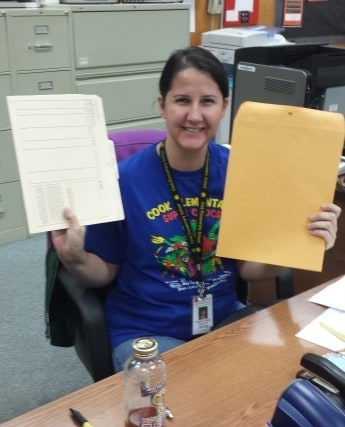
7. Go into the classrooms.
This action has tremendous value and is something that I just recently recognized (even though I had already learned in graduate school how important it is). We typically look at our students’ goals and just pull out materials to work on what we think is appropriate. However, by doing this, you are targeting the goals out of context. The whole point of the services you provide in the schools is to help them achieve academic success. Are you sure what you are working on in therapy correlates with the curriculum? Are you confident that the skills they master with you are useful for the coursework targeted in the classroom? It takes just 15 minutes of observation time for you to get priceless information about your student. Don’t underestimate its value. For more information, we have a course, Breaking into the Classroom, for you.
8. It will get harder before it gets easy.
So you just finished your graduate program and are starting your CF. Congrats because all the learning has been completed and all you have to do is use the information you obtained! Sorry to disappoint, but the learning doesn’t stop. The public school system can be quite complex and there are lots of rules and regulations to learn specific to your field. You’ve got FERPA, Individualized Education Plans, caseload rosters, Medicaid, SOAP notes, ARD meetings, RTI, evaluation protocols, evaluation reports…I really could go on. You may have heard about these in graduate school, but you never REALLY had to directly deal with any of it with a caseload of 40 plus (and that’s a nice small caseload)! So expect to have long hours, at least in the beginning, until you get a hang of all the procedures. I know at the beginning of my CF I physically felt the effects of information overload and it is definitely overwhelming. But don’t worry, miraculously you will one day wake up and know your stuff. Just be prepared for what will feel like an uphill battle before the clouds begin to clear.
9. Don’t forget the kids.
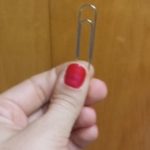
For some motivation, check out this video, SLPs.
Check out ASHA’s resources about the Clinical Fellowship Year.




I loved reading this post. I definitely agree with your advice. Check out my advice for the newbies at my blog!
Excuse My Speech Blog